Zambia Road Trip from Bottom to Top
categories: africa travelSelf-driving through Zambia is an experience unto itself, and certainly not a journey for the faint of heart. This is a rugged landscape where the condition of the roads can be downright shocking. GPS often fails, the roads (including the highways) are tricky minefields of potholes, and poor signage results in journeys that take twice as long as anticipated.
Table of contents: ()
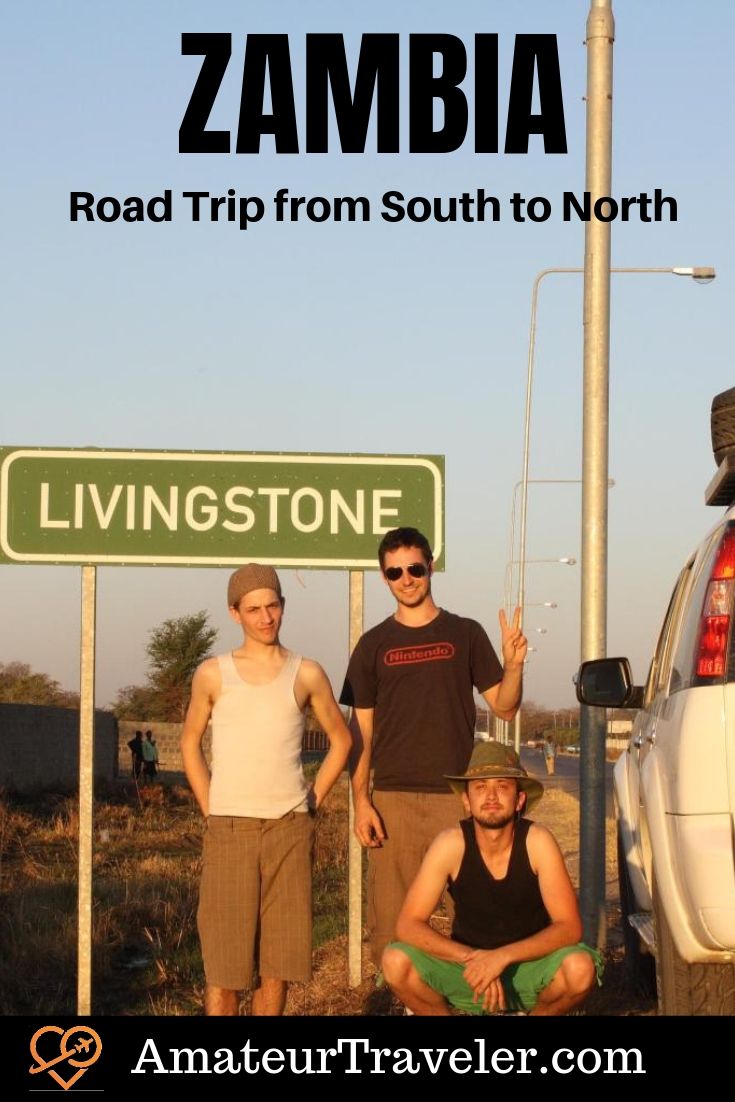
But, all of those challenges are part of the fun and contribute to a beautiful, endearing, immersive African experience. Seeing Zambia by car is absolutely the best way to get to know this country and its people. Landscapes of dry scrubland, majestic acacias, and thatch hut villages accompany you every mile of the journey. And as the sun sets in brilliant crimson, locals ride bicycles to their homes, haul bales of sticks on their heads, and children wave as you drive past.
This journey took four days as part of a larger southern Africa self-driving road trip, driving in a roughly north-eastern direction. The northern part of this route is The Great North Road and is the main arterial highway used by anyone traveling through Zambia. The route began at Livingstone and ended at the Tunduma-Nakonde border crossing into Tanzania.
Livingstone
With an evocative colonial name that reminds one of the eponymous British explorer, the relaxed town of Livingstone in the south-west of Zambia is likely to be the most touristed place in Zambia. It is also the closest town to the border crossing into Botswana. As the main hub to Victoria Falls, Zambezi River activities, and Mosi-Oa-Tunya National Park, Livingstone has good infrastructure and services.
There are lots of high-end accommodation options around, as well as campgrounds with good facilities. Take this opportunity to splurge on decent food and gin and tonics at sunset, especially at the wonderful riverside bars and restaurants such as the Victoria Falls Waterfront Restaurant.
Victoria Falls
Locals call it Mosi-Oa-Tunya, the smoke that thunders. By far Zambia’s biggest draw, the local translation for Zambia’s iconic waterfall is certainly well earned. Nature is on display at its most spectacular and furious here, an inconceivable curtain of water 1,700 meters (5,600 feet) wide, and over 100 meters (330 feet) high. The effect of this colossal power generates mists that rise high into the air.
The site is huge, and there are different walking paths available, with green hobbit-esque cloak raincoats for those hoping to keep dry from the spray. The most intense viewpoint is the precarious Knife’s Edge Bridge that passes immediately in front of the falls, and visitors are guaranteed to get soaked. Another walk leads to the very top of the falls, where the calm Zambezi River drops off the end of the world.
If you’re feeling brave and depending on the season, swim in the notorious Devil’s Pool, a naturally formed pool that comes right up to the lip of the falls. Climbing down the steep forest trail to the river far below, you can see the bungee jumpers leaping from the bridge above. For thrillseekers, don’t forget your passport when you bungee, because the bridge is actually the border between, Zambia and Zimbabwe!
Lake Kariba
Running along part of Zambia’s southern border is Lake Kariba, a man-made lake created when the Kariba dam was created, and Kariba gorge flooded in turn. Besides lovely photographs, the lake on the Zambian side doesn’t offer much in activities, and most tourist infrastructure is found near the dam in the north.
A visit here is only for the intrepid, or in our case, those who took a wrong turn and got lost. Accommodation is extremely basic, so expect no food or electricity, and access by road is a very hard drive (high-clearance 4×4 is essential) to reach small lakeside villages such as Sinazongwe.
A word on potholes
Be prepared for Zambia’s biggest challenge – bad roads. Smaller asphalt roads are often peppered with deep, sharp-edged craters that make the road look like the surface of the moon. Sometimes, the potholes have been filled in with a pile of knobbly rocks, creating teeth-rattling speedbumps. The resulting slalom demands low speed and your full attention.
Things get even more hair-raising on the highways when drivers are most unaware. Long, smooth stretches of tarmac are interrupted suddenly with pothole trenches that span the entire width of the road. They’re so deep that they can rip the wheels off a semitrailer, evidenced by the many overturned trucks along the roadside, the stranded drivers sleeping on top. To detect them, offroad tracks on either side of the road is the telltale sign.
Lusaka
Welcome to Zambia’s capital, a cacophony of office blocks and traffic-choked, dust-blown arterial roads. This is not a pretty city, nor is there much incentive to stay very long. It’s madness here, and we even saw a tout with a puppy in each hand, trying to sell them to cars at red traffic lights.
For those interested in stopping, it’s worth checking out the lively Lusaka City Market, bustling with clothes and African souvenirs. But my recommendation is to drive straight through Lusaka and continue to Kabwe.
Kabwe
A sanctuary in the most unlikely of forms, Kabwe came as a sigh of relief from a long day on the highway. A shoddy asphalt road led down a single main street.
Though not much to look at, Kabwe had a supermarket and some decent accommodation options, such as the brilliant Tuskers hotel, which features a pool and a spacious dining room, where the white-aproned servers observed every courtesy in table service.
For cheaper accommodation, a number of local motels and guesthouses offer comfortable rooms. The lush gardens from our guesthouse had a number of strange garden artworks on display, such as a fiberglass swan with a broken neck, and three taxidermied impalas, frozen in terrifying forms.
Meeting the locals
Zambia is full of friendly people, and it doesn’t take much to engage in conversation with them. At petrol station stops, women selling great bunches of bananas on baskets on their heads liked to come in for a chat. Smaller villages sometimes have a local shop to buy snacks or drinks. Within minutes, you’ll likely find yourself kicking around a soccer ball made of newspaper and string with a group of excitable children.
Along the highway, local potters and craftsmen display long lines of their pots and ceramics to entice travelers to stop and buy something. It’s worth stopping for a look, as many Zambians like to practice their English and tell you about themselves, their families, and their trade.
Mpika
A town on the highway in the north of the country, Mpika was little more than a refueling stop. Whilst buying groceries in a local supermarket, we attracted a ‘car guard’, an enterprising young kid who agreed to watch our parked car in exchange for money.
When we returned, he wasn’t guarding our car at all, but negotiating with another car to guard them. Upon spotting us returning, he sprinted over to show us what a good job he had done. Impressed with his hustle, we gave him a few Kwacha for his effort.
Kapishya Hot Springs Lodge
Nestled deep in the forests of Zambia is the Kapishya Lodge, built around the hot springs of the same name. The thermal pool is a sulfur-free pool, with soft, bubbling sand rising from the geothermal activity underfoot.
The lodges are lofty, timber constructions that overlook the Mansha river, great for rafting trips during the day. In the evening, guests all get together in the long dining room for a nice communal meal.
Wildlife and national parks
Zambia is a wonderful country for spotting wildlife, and the occasional zebra might skip in front of your car on some of the smaller roads. But for great game spotting, there are several national parks of note. We visited national parks in neighboring Botswana and Tanzania, so we didn’t visit any whilst in Zambia.
However, these are some recommendations from people we met and guesthouses we stayed at. Kafue, Lower Zambezi, South Luangwa National Parks are all ideal spots for wildlife and bird-watching and easily accessible by road for anyone doing a self-drive trip.
Border crossing to Tanzania
Tunduma is where border control into Tanzania takes place. When we first drove up, it appeared to be a nightmare in disorganization, with an extremely long line of stationary trucks waiting to be inspected. A car park full of cars near the border had a coating of dust so thick, that we wondered if the cars had been there for years.
- Buy Travel Insurance
- Search for Great Tours HERE
- Get a Car Rental
- Get an eSim to be able to use your smartphone abroad.
- Book Your Accommodation HERE
- Get a universal plug adapter
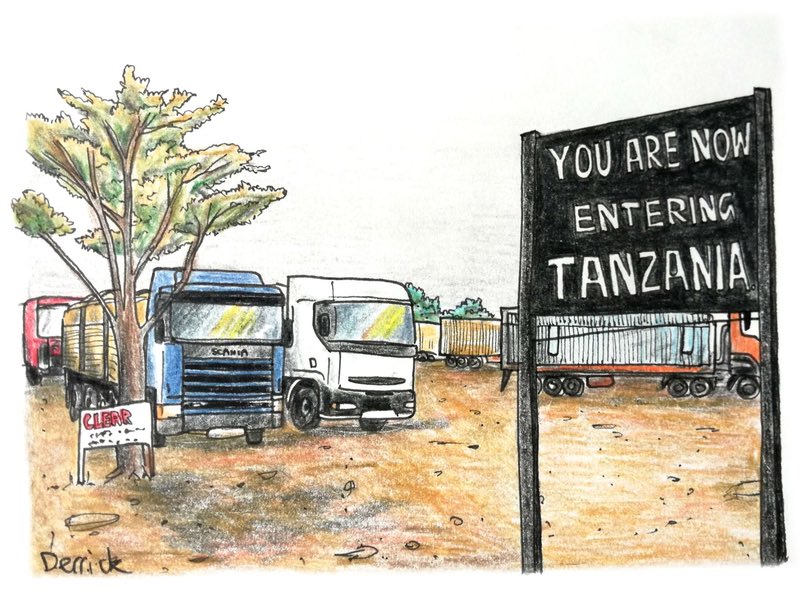
There are some things to remember when crossing here. A few government buildings handle all of the official business, whilst outside, a hectic conglomeration of people mill about. The rule of thumb is to ignore anybody who offers to help you if they’re not behind a desk. Anybody else is looking for money to ‘help’ you cross the border, or will simply steal your paperwork.
This route was a relatively short sojourn in Zambia. But with minds focused on the challenges of driving, wonderful people to meet along the way, and the most impressive waterfall in Africa, the experience was unlike any other; an intoxicating, beautiful, and memorable adventure.
3 Responses to “Zambia Road Trip from Bottom to Top”
Leave a Reply
Tags: article, livingstone, road trip, victoria falls, zambia

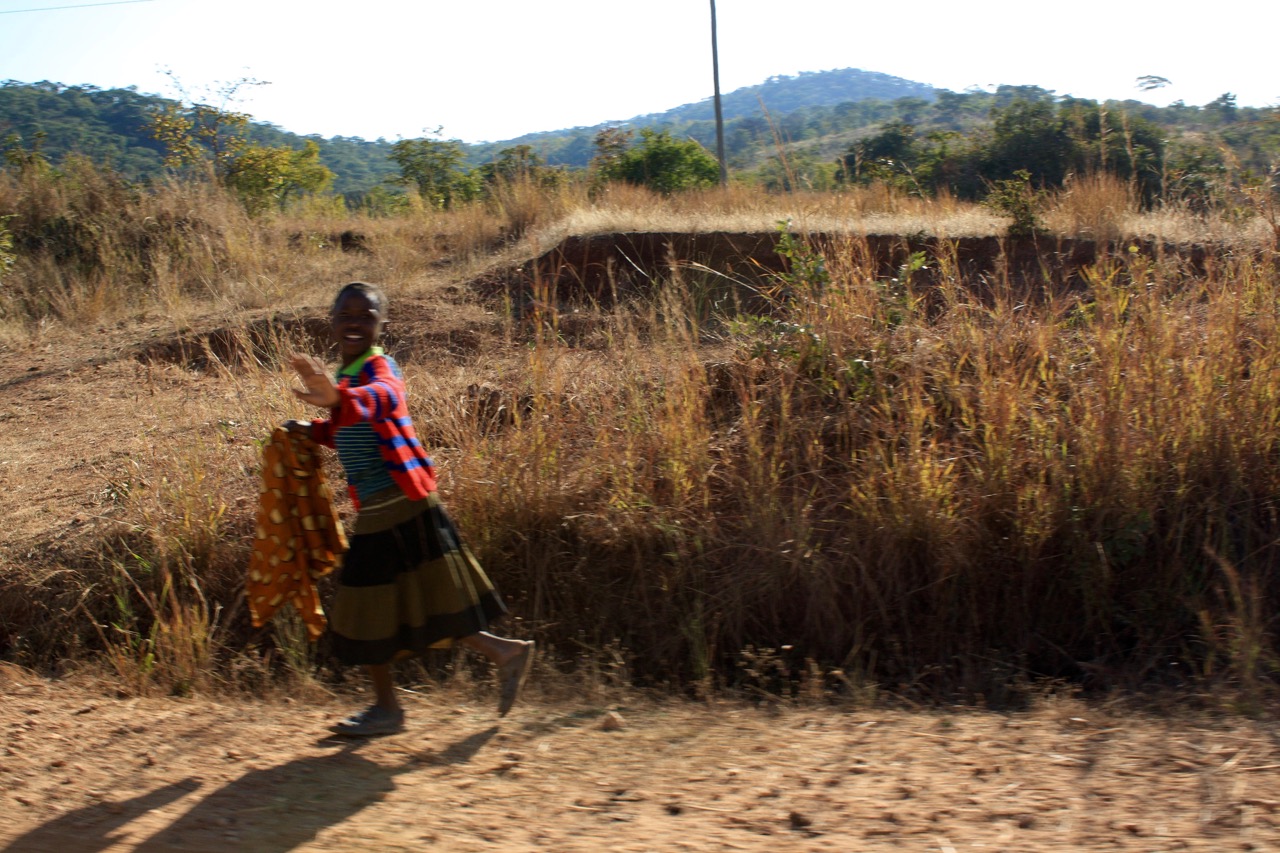
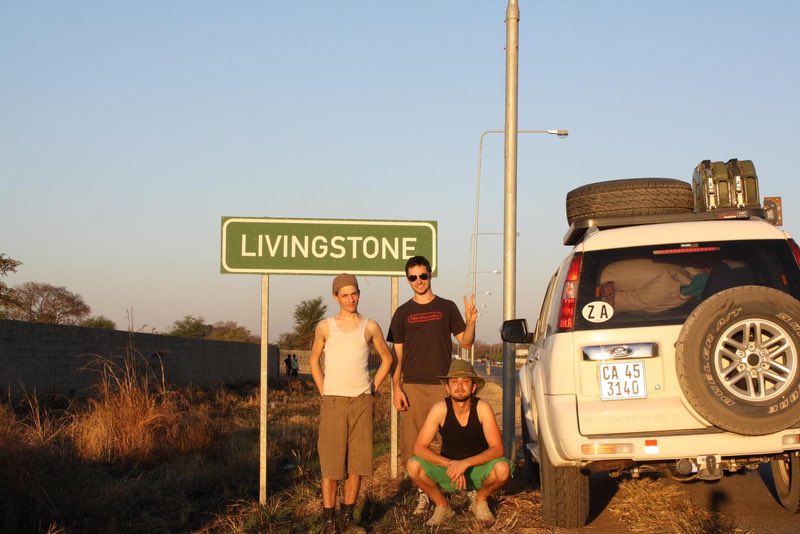
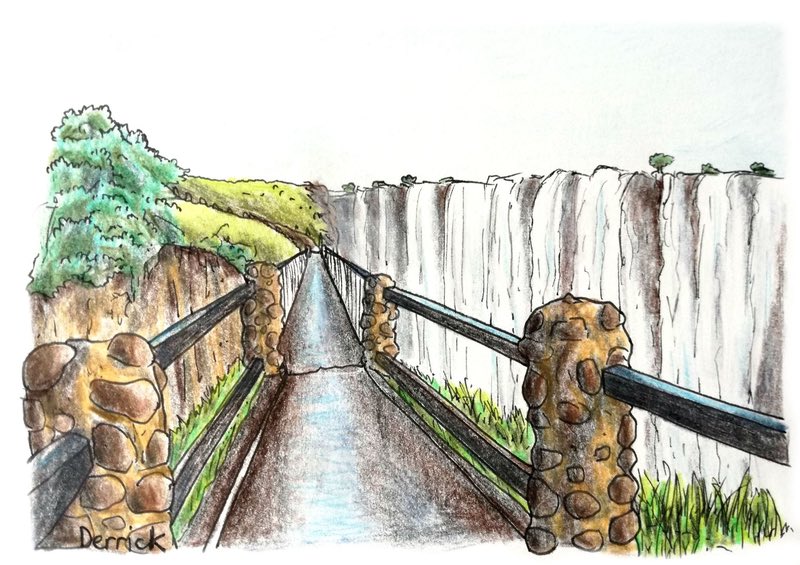
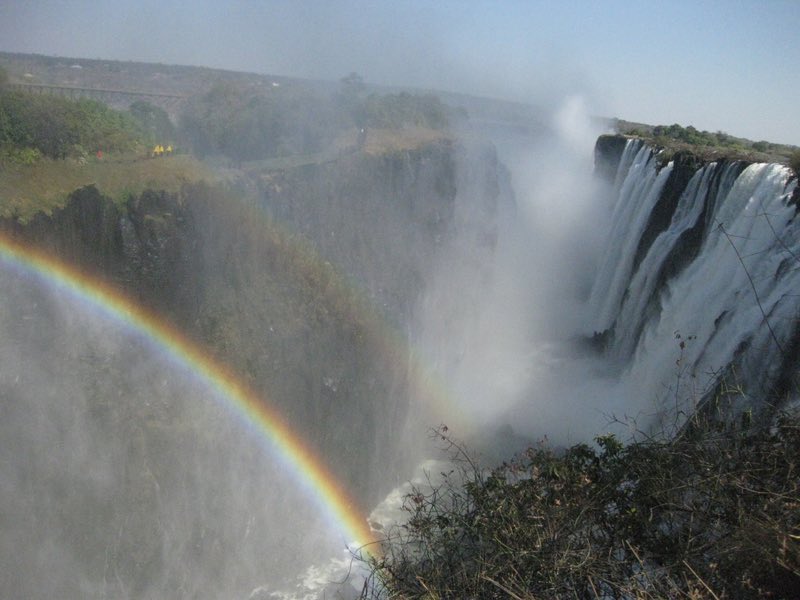
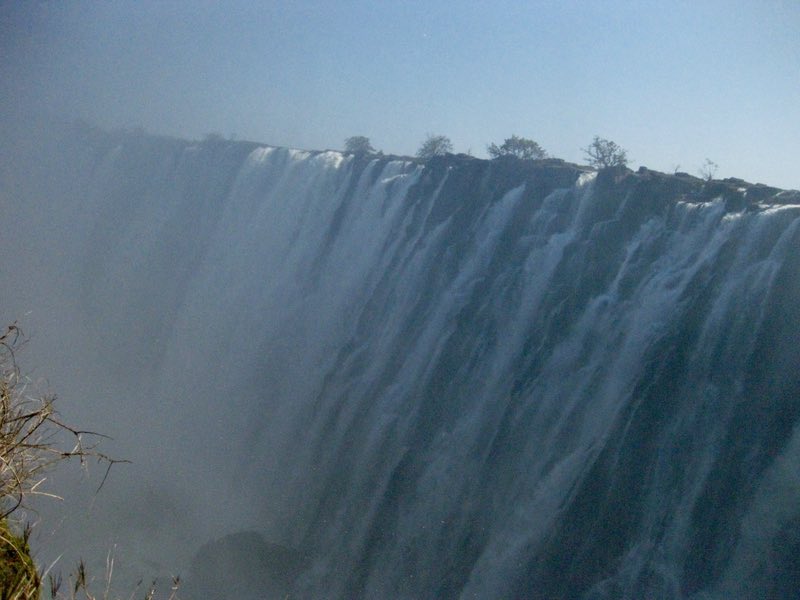
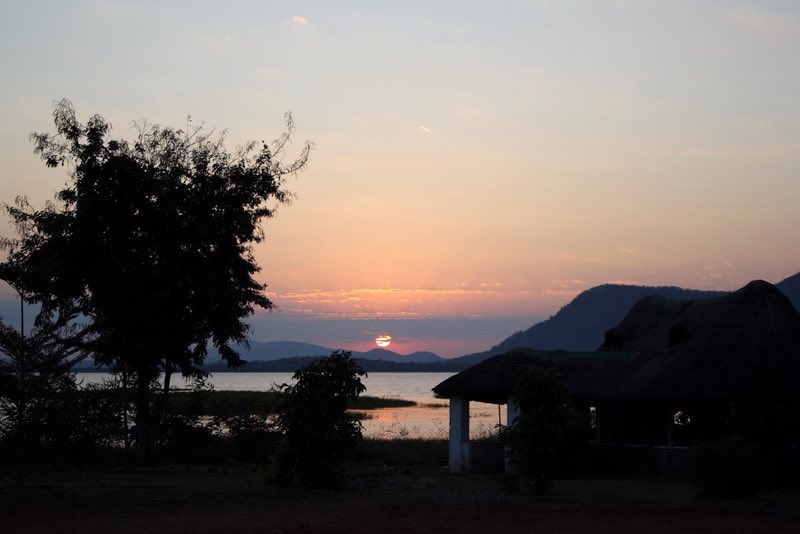
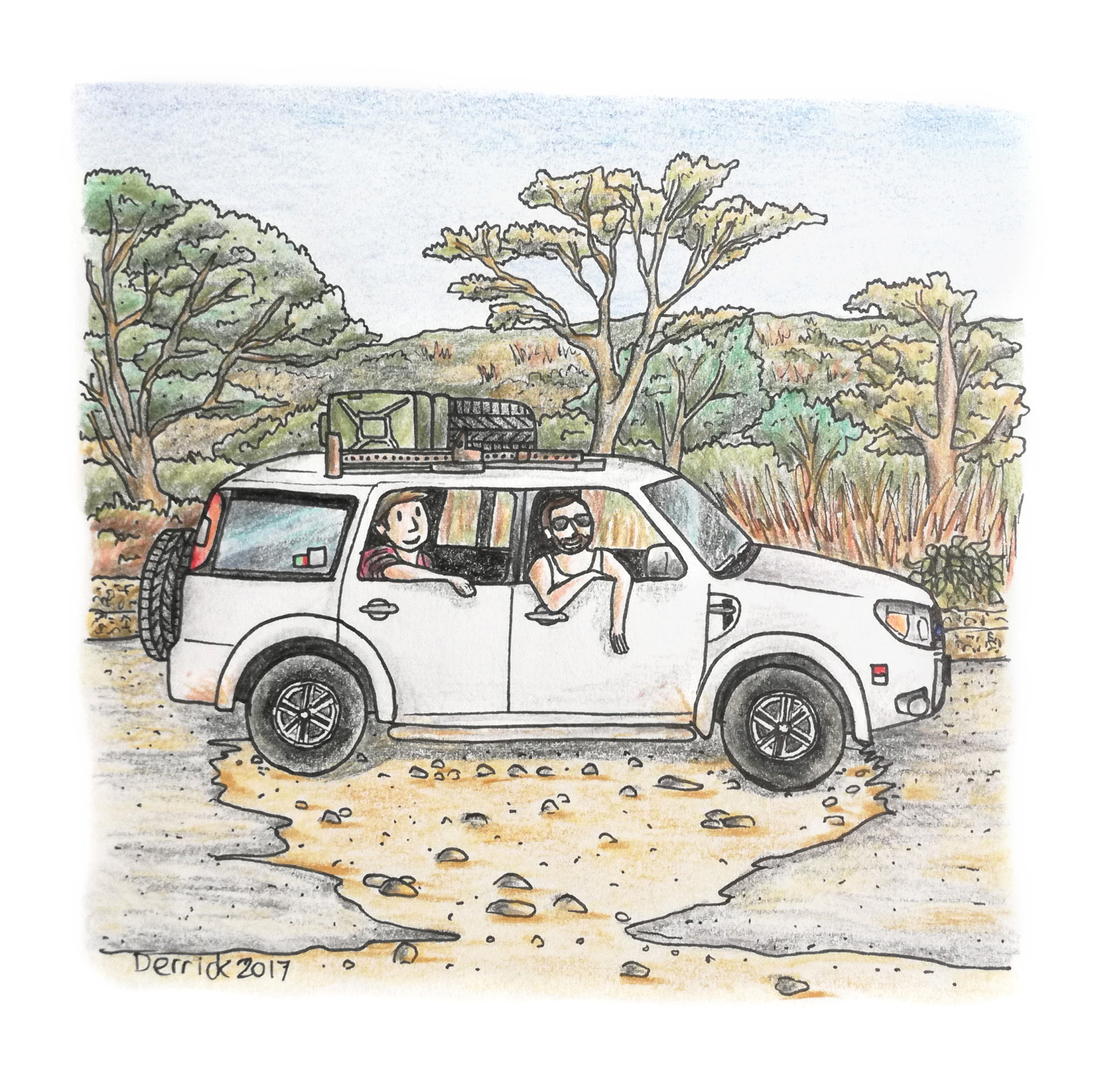
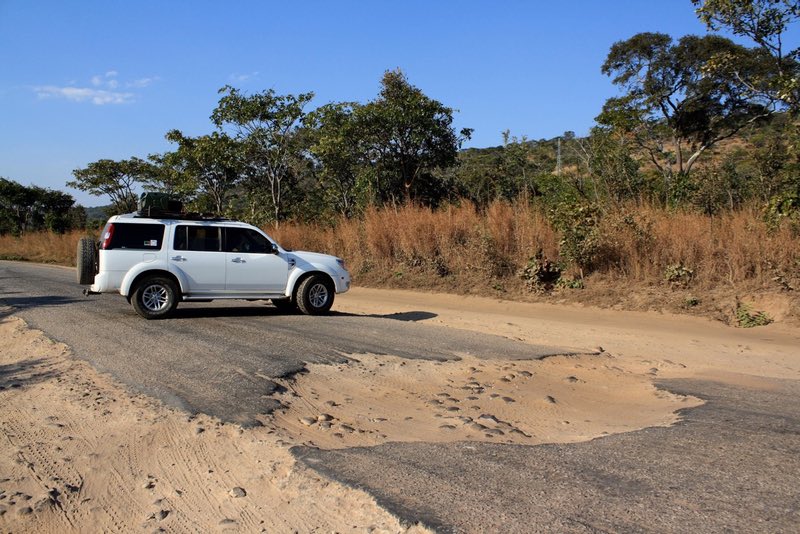
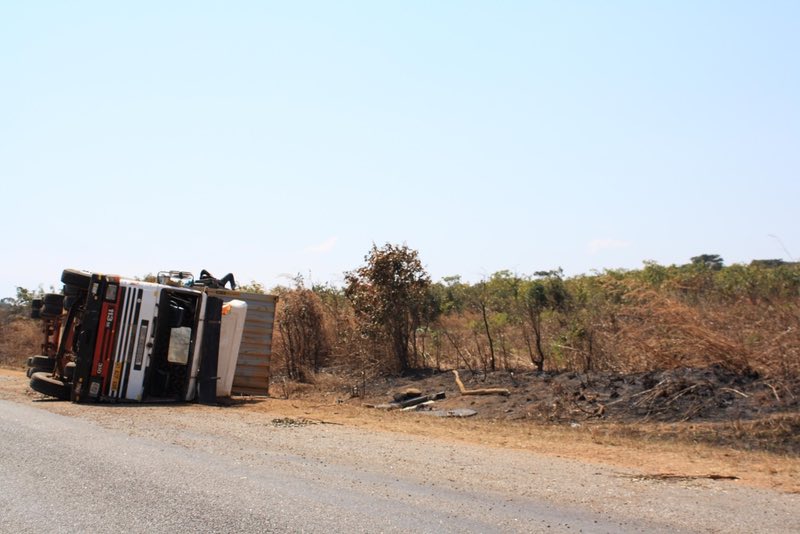
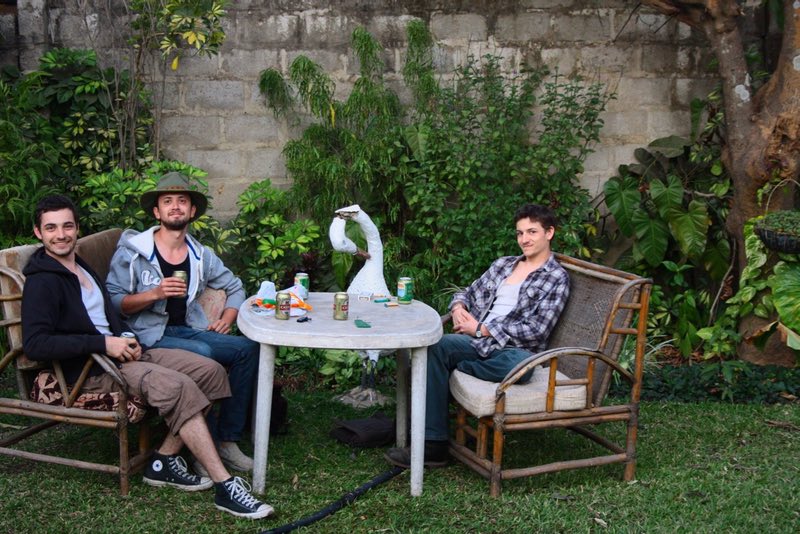
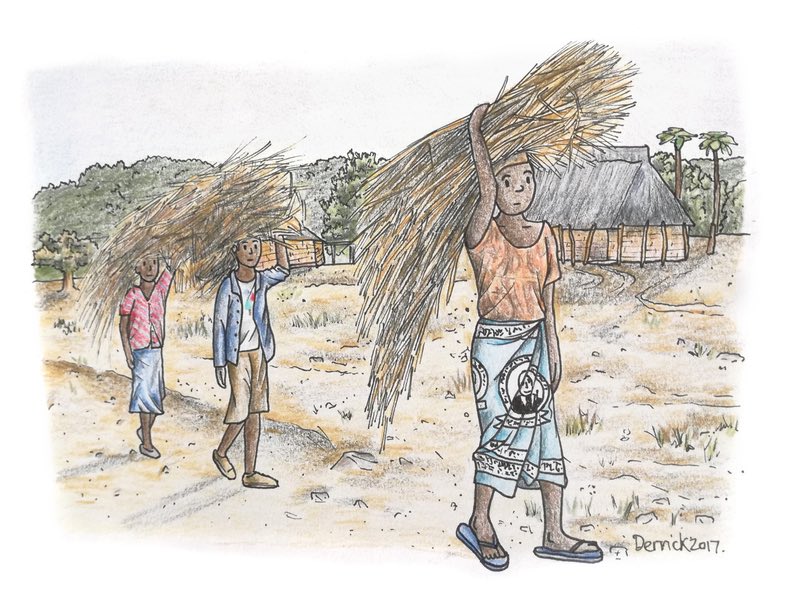
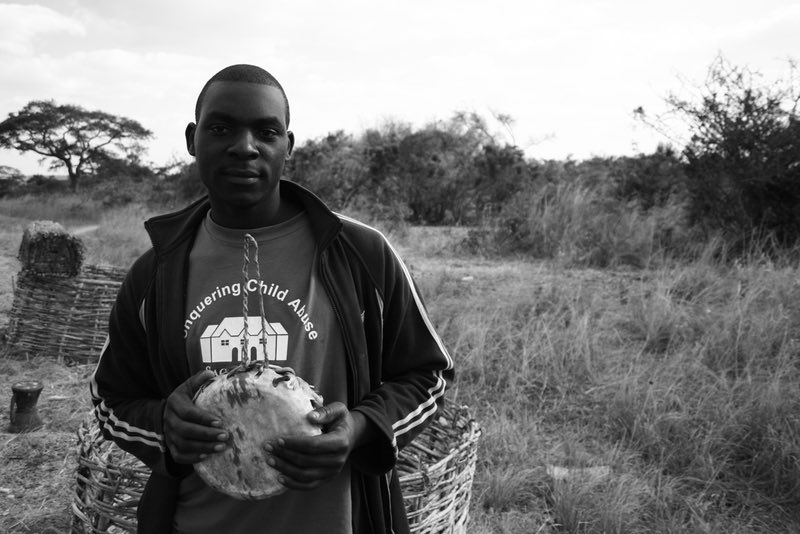
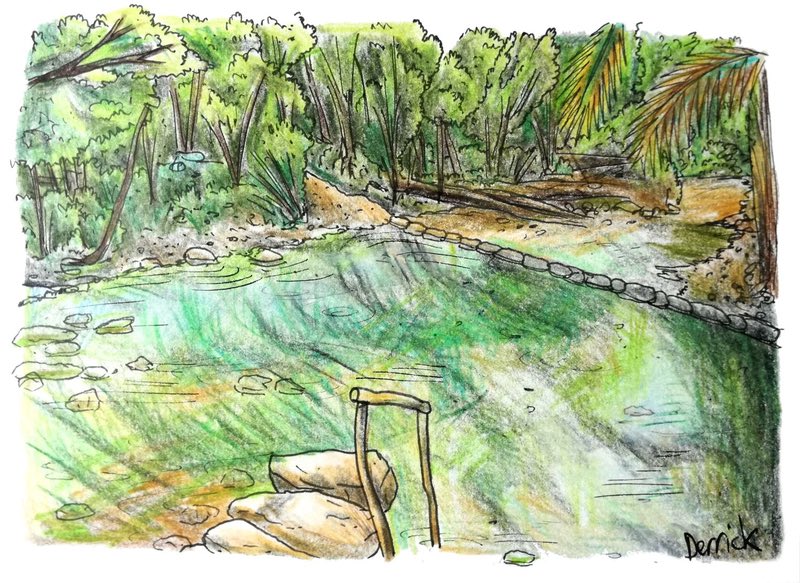
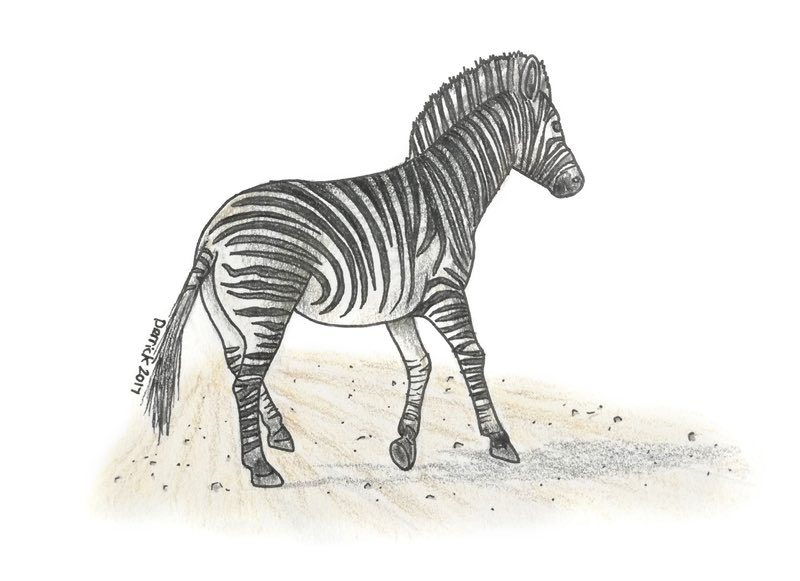
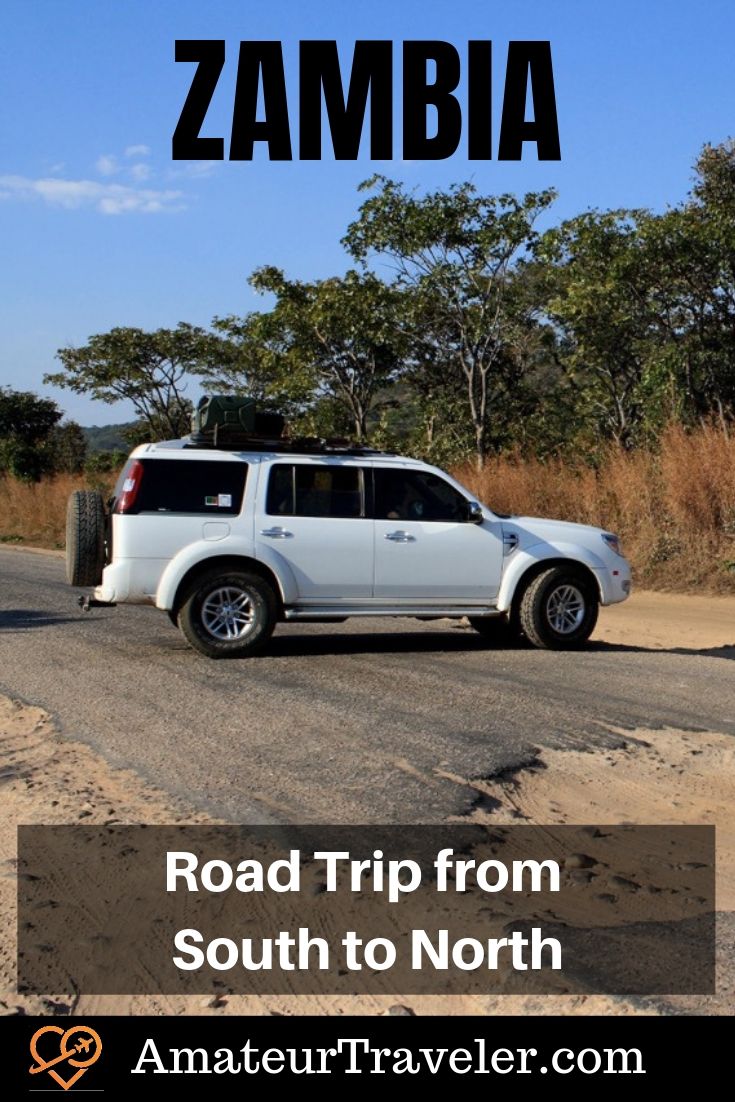
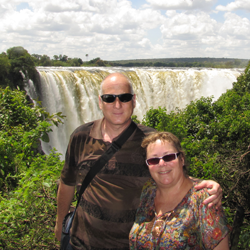 Travel to Victoria Falls (Zimbabwe, Zambia) – Episode 371
Travel to Victoria Falls (Zimbabwe, Zambia) – Episode 371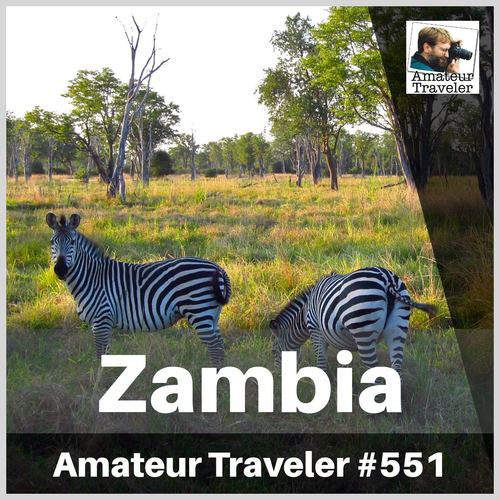 Travel to Zambia – Episode 551
Travel to Zambia – Episode 551 Tanzania – Best Safari Destinations (Lake Manyara, Ngorongoro Crater and Tarangire)
Tanzania – Best Safari Destinations (Lake Manyara, Ngorongoro Crater and Tarangire) Africa Overland – Tour from Johannesburg, South Africa to Victoria Falls, Zimbabwe
Africa Overland – Tour from Johannesburg, South Africa to Victoria Falls, Zimbabwe

Johanes
Says:June 5th, 2019 at 12:40 am
Wow, this is awesome. I also want to start a road trip. I didn’t know there are these breathtaking places there. Thank you for sharing.
Theunis Van Der Westhuizen
Says:September 11th, 2019 at 11:50 pm
I have done the trip to and from South Africa four time in the last three years. I stay in Nairobi Kenya
I am planning to travel to SA in December 2019. In January 2019 when I came up the last 90Km before the Tanzania Boarder (Tunduma) was very bad. When did you pass through here and is the road any better
Oton Akan
Says:May 31st, 2020 at 6:19 pm
Hello Good day!
Please I wish to enquire how do I travel down my way to Zambia by road all the way from Cameroon, Yaounde precisely?